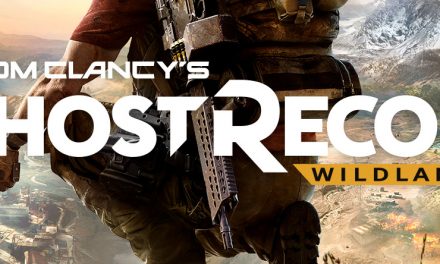Recently a discussion of average story length has come up, and it made me really think about why I structure and frame the posts on this blog in the way that I do. Borrowing from Roger Ebert, “no good movie is too long and no bad movie is too short,” and I believe that statement to hold up for literary works as well.
In early American literature authors were often paid by the word, which lead to long, sweeping descriptions of everything that happened, even branching off into unrelated rambles or digressions. I think taking a look at many of our classic authors in this light may be an interesting avenue for interpretation, or at least giving the work some context. By counterpoint, Alexandre Dumas and other French writers were often paid not by the word but by the line – hence the Musketeers often engage in witty, round-robin banter among themselves and with others, each person only saying a few words before the next character speaks. Again, it gives an interesting context to the work, knowing some of the reason behind its particular structure.
In my youth my teachers laid down some fairly concrete rules for writing: each essay should be at least five paragraphs, each paragraph should be at least five sentences, and each sentence should be at least ten words. We were reading essays like Walden with this long, flowing prose, and largely this one style was idealized. I’m not qualified to argue the merits or problems of such an education, but I do know that most of the fiction books I read growing up were between 350-400 pages, and that’s what I tended to base my expectation of how long a “book” should be (with the occasional tome like The Sword of Shannara weighing in at over 900).
In today’s electronic world of tweets and mini-Facebook rants, brevity doesn’t just seem to be the soul of wit but also the standard of casual conversation. Obviously there are different styles of writing for different contexts (a text to your friend is going to be very different than the intro to a formal academic paper, I would hope), but I often hear from teachers that modern students are more used to short, concise bursts of information rather than long passages. Again, I’m not here to argue the strengths or weaknesses of their observations, but their experiences and my own made me consciously choose for a particular word-count for my own posts; short enough to be engaging, not long enough to bog down the subject – either the topic or the reader.
It is said that an average book page has between 250 and 300 words on it, with essays or other full-page print weighing in at 500 (if single-spaced). Most of the fiction I post on this site falls into that category of being just around one full page: never below 300 words, rarely over 500. One-off stories may get a bit lengthier, but for the episodic work I try to hold to a consistent margin. Some of this is because my inspiration or drive to write peters out after about that long, but also because I think it’s more accessible for someone to read an interesting (I hope) one-page snapshot rather than a three- or four-page exposé.
I also look at it from a modern reader’s perspective – they won’t know whether or not they like the piece from the outset, but they will know roughly how long it is, and that can greatly influence their decision whether or not to even start reading. Already this post is cresting the 600-word mark, with long (for web) paragraphs, and it’s looking lengthy in the preview window. If given an option of multiple pieces to read, and the internet has an innumerable set of choices, I think most people would err on the side of brevity, if for no other reasons than bad works would be over and done with sooner, and the “payoff” for good works arrived at more quickly too.
While there are many different “standards” when it comes to writing length, particularly in the age of digital media, I’m a fan of how Lee Masterson breaks things down in the article How Long Should Your Story Be? In it, Lee describes flash fiction, that spur-of-the-moment, get-it-onto-the-page shotgun approach as fewer than 1000 words. Stories are quick, tight, and designed to get to the meat of the matter as quickly as possible, eschewing as much extra detail as the author can get away with. Short stories weigh in between 1000 and 7500 words, with increasing categories for novelettes, novellas, novels, and epics.
I have finished writing the whole of my Lavis Chronicles arc, and while I won’t give specifics until it’s been fully published, it weighs in around 16,000 words for the full run. If I ever wanted to publish it, after adding chapter bridges and a fair amount of cleanup, it would probably be near 20,000 – a short novella. I could be pretty proud of that, honestly, even if that falls fairly short of 100 printed pages.
As I’ve written more and more, whether it’s my Covert Ops series, an upcoming post-apocalyptic project, or individual works, I suppose I’ve become more comfortable with writing slightly longer pieces as I delve into societal and political subject matter. Writing from the perspective of one (or more) characters, instead of writing a historical chronicle means I both can and need to include more of that person’s thoughts and feelings, ways to put their words into context for their life and their perspective. This not only makes the posts longer, but also means I’ve started writing two- or three-part pieces that cover a single subject in greater detail. Deciding to split things up in that way is largely a function of my posting schedule and trying to maintain a steady output of posts that don’t randomly double or triple in length out of the blue.
I still worry about creating “too much” content for new readers to take a chance with, which is a very real (if unrealistic) concern, but it is my sincere hope that the material I produce is varied enough that people may individual entries or different series that suit their fancy, without feeling obligated to read through the entire catalog. In that way I look at several webcomics I follow with thousands of posts, most of which combine to tell a continual story – most pieces stand on their own, even if they are enriched by an understanding of the whole, letting new readers jump in almost anywhere, any time, and not feel overwhelmed or lost.
Several of my friends are writers, and the constant lament we all share is “the words just won’t come out” onto the paper. Even with as much as I create, some weeks scheduling multiple thousands of words worth of posts, I still feel the same. Writing has become a very powerful and helpful outlet for me, both socially and mentally, and I think many of the changes in my life over the past two years have spurred me to actually get my thoughts out and into the world again.
One of my favorite childhood authors, David Eddings once wrote sarcastically that a lot of people, inspired by his work, tell him they’re going to be writers. His sarcastic response was that “no, they’re not” because if they were, they’d be too busy writing their own stuff to write to him. He described writing as a job, sometimes even a thankless chore, something one had to practice every day or there would be no hope of success. While there are many schools of thought on the nature of writing and authorship, there is a very real distinction in my mind between wanting to do something, and doing it.
Think of the stereotypical waiter in Los Angeles – they may describe themselves as actors or writers or dramatists, but all the world sees is someone with a day job. Please don’t think I’m trying to tut-tut their dreams, goals, or other hobbies – far from it – but how many who may call themselves members of a particular profession actually produce, create, or work in that field? In this blog I’ve elsewhere discussed the difference to me, between doing a thing and being a thing, so I won’t re-hash too much of that (in this now-1400-word post), but I think Meg Cabot, #1 New York Times best-selling author, puts it very well in her FAQ:
I want to be a writer, but I can’t seem to sit down and write.
That is the difference between someone who WANTS to write, and someone who DOES write. The person who FINDS the time is the one who is going to become a writer. The person who doesn’t, won’t. You have to decide what’s important to you. I didn’t write very much while I was in school because I had too much homework/social life. There is no shame in waiting on the writing thing until you have more time. I did.
I really like that she puts a positive spin there on the end, in stark contrast to the response David Eddings gave to the people who approached him. There are as many different approaches to writing and being a writer as there are people putting words to page. Herein I’ve gone quite a bit farther afield than I had originally planned, but I took pleasure in putting these words down, and actually getting some of my thoughts on the topic out.
This post doesn’t top the list for my longest (that would be the story Shallow Steps), but it sure comes close. A genuine thank-you to everyone who has checked out this blog, this post in particular, and who keep coming back to see new content – it really, really means a lot to me and I appreciate everyone who does.















